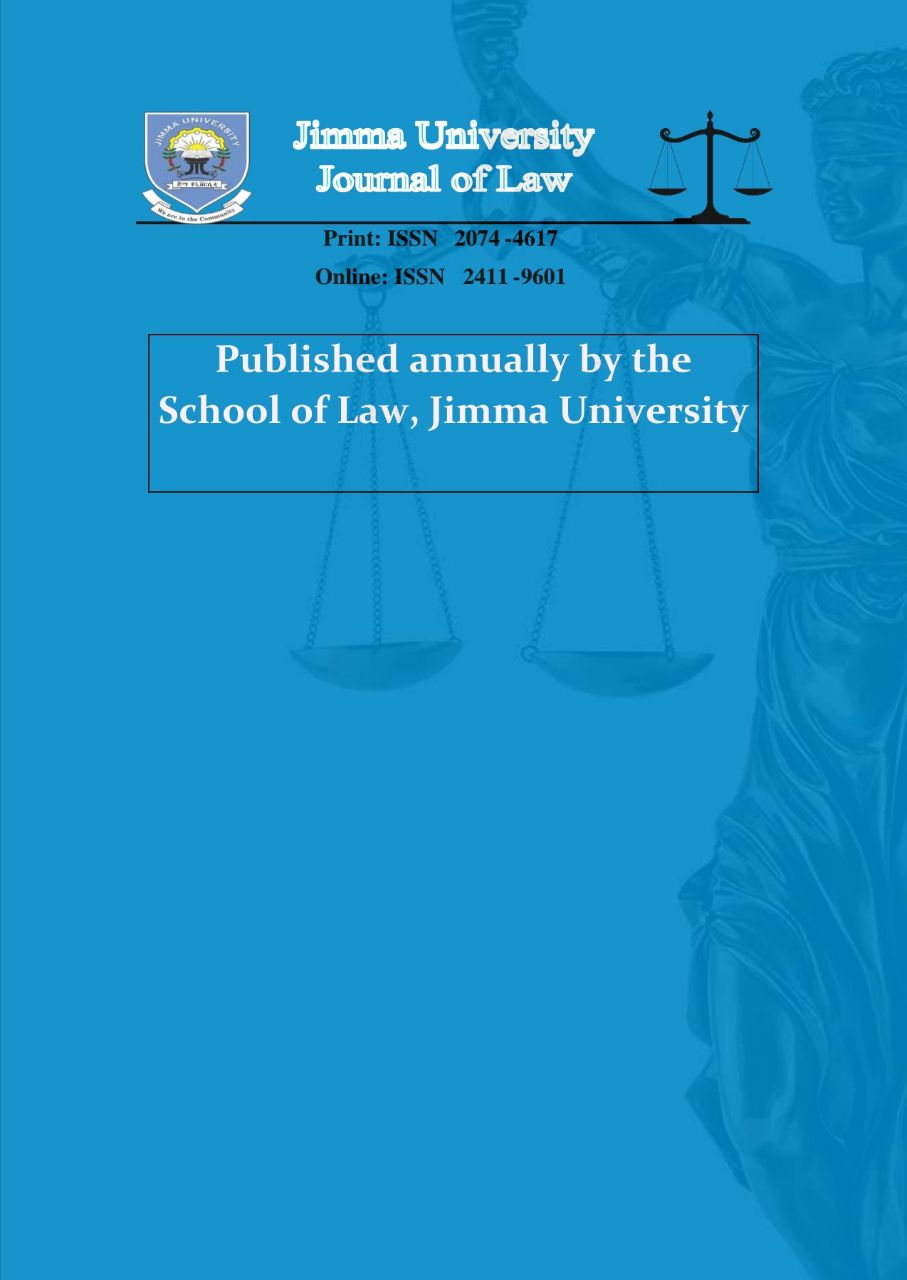Dealing with the Legacies of Repressive Past: Transitional Justice in ’Transitional’ Ethiopia
Abstract
In recent past, lengthy conflicts that wreaked havoc and caused incalculable human causalities in several African countries came to an end. Likewise, deeply entrenched undemocratic and repressive modes of rule have given way to relatively democratic civilian governments. Regrettably, the African continent is still saddled with conflicts and atrocities, and authoritarian regimes are the rule rather than the exception. In many countries such as the youngest Africa nation, South Sudan; Somalia, Democratic Republic of Congo and Ethiopia horrific conflicts are causing an incalculable number of human casualties.
Most often, the displaced authoritarian regime and the conflict are characterized with gross human rights violations, tattered social fabric, social discontent and societies divided along different lines. Hence, following a transition from authoritarian regime to a relatively democratic one or from conflict to stability, the newly installed government is often faced with the herculean tasks and formidable challenges of how to confront the repressive past in order to build the future yet without upsetting the fledgling democracy and fragile peace.
Numerous countries across the globe were confronted with this formidable challenge and many others particularly in Africa are still grappling with this arduous task. It has become a burgeoning practice that addressing past gross human rights violations by charting appropriate transitional justice mechanisms is necessary in order to, inter alia, re-humanize the victims, replace impunity with accountability and restore rule of law, and to promote reconciliation by uncovering the comprehensive truth. However, as transition is an extraordinary and chaotic period that requires sui generis mechanisms, the questions of how to address and effectively come to terms with the evils of the past is a complex and daunting one yet necessary.
In recent past, Ethiopia has also experienced series of regime changes and faced the challenges of confronting the legacies of past gross human rights violations. The newly installed governments have put in place different mechanisms, albeit incomplete and inadequate, as a means to come to terms with alleged violations of predecessor regimes. Nonetheless, Ethiopia’s history is still rife with unsettled and unprocessed egregious human rights violations and historical grievance. Since April 2018, Ethiopia is again in transitional process and grappling with transitional justice issues that often arise during such ‘transitional period’. Thus, this article takes stock of the transitional justice mechanism/s that Ethiopian put in place or should have put in place with special emphasis on prosecution and the Ethiopian Reconciliation Commission
The article is divided into four parts to address major issues surrounding Ethiopia’s attempt to come to terms with the legacies of widespread and systematic human rights violations of the past. The first part briefly introduces readers to the general notion of transitional justice and mechanisms. The part that follows dwells on transitional justice in Ethiopia. To do so, this part takes stock of the major transitional justice mechanisms that the post-Derg regime and the incumbent Abiy government have put in place to deal with repressive past in seriatim. The third part briefly deals with the interface between the mechanisms’ put in place and on how to address their symbiosis. The last part of the article puts forth lessons that can be drawn for the current transitional process and plausible means which help rectify the blind spots of the ongoing transitional justice mechanisms and thereby restore the mechanisms.




